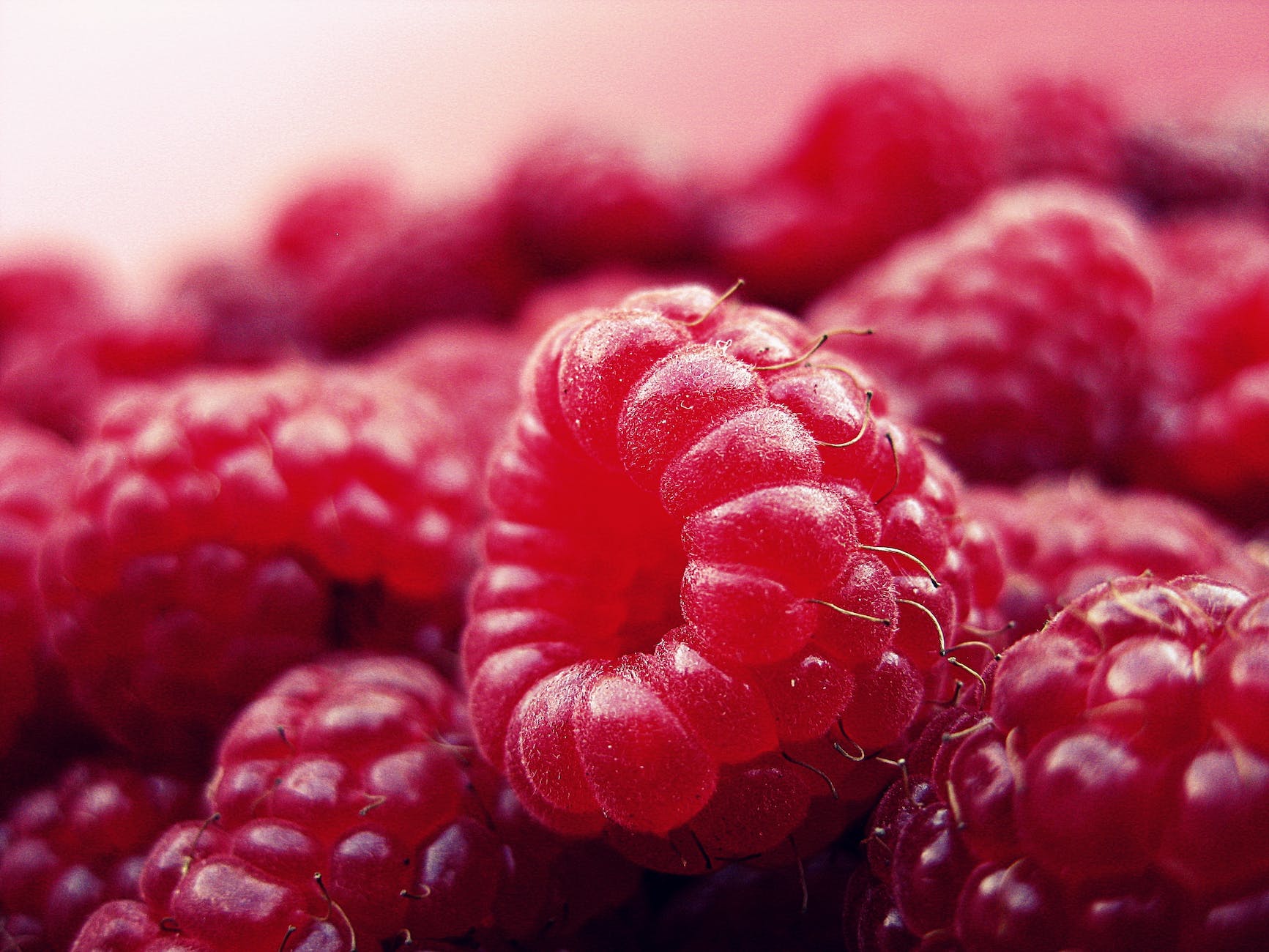
Introduction
Beloved for their sweet and slightly tart flavor, Raspberries are small, soft, heart-shaped berries that come in various colors — each with their unique composition of vitamins, minerals, and antioxidants. The most common variety, however, is the red raspberry. Originating in Europe, raspberries have been enjoyed by humans for thousands of years and continue to be a popular fruit worldwide.
Nutritional Profile
Per 100 grams, fresh raspberries provide:
- Calories: 52
- Protein: 1.2 grams
- Fat: 0.7 grams
- Carbohydrates: 11.9 grams
- Fiber: 6.5 grams
- Vitamin C: 43.5% of the DV
- Vitamin K: 10% of the DV
- Vitamin E: 4% of the DV
- Potassium: 3% of the DV
- Magnesium: 3% of the DV
Health Benefits
The nutritional profile of raspberries suggests several health benefits:
- Antioxidant Rich: Raspberries are packed with antioxidants such as Vitamin C, quercetin, and ellagic acid, which protect your cells against damage from harmful free radicals.
- Anti-Inflammatory Properties: The antioxidants in raspberries also have anti-inflammatory properties, which can help reduce inflammation in your body.
- Supports Digestive Health: Raspberries are high in fiber, which contributes to a healthy digestive system and can help prevent constipation.
Potential Warnings
Raspberries are generally safe to consume, but some people may need to consider the following:
- Allergies: Some individuals may be allergic to raspberries, causing symptoms like itching, swelling, and difficulty breathing. If you suspect an allergy, consult with a healthcare professional.
- Pesticide Residue: Like other berries, raspberries often contain pesticide residues. It’s recommended to wash them thoroughly before consumption or opt for organic raspberries when possible.
Weight Loss Benefits
Raspberries can be a great addition to a weight-loss diet because:
- Low in Calories: Raspberries are low in calories but high in fiber, making them a filling, guilt-free snack.
- High in Fiber: Their high fiber content can help you feel full for longer periods, reducing the chance of overeating.
Five Practical Ways to Incorporate Raspberries into Your Diet for Weight Loss
- Raspberry Smoothie: Blend a handful of raspberries, a cup of almond milk, a scoop of protein powder, and a teaspoon of chia seeds for a filling, nutrient-packed breakfast. This combination will provide protein, fiber, and healthy fats, which can help manage hunger.
- Overnight Raspberry Oats: Combine oats, almond milk, chia seeds, and raspberries and refrigerate overnight for a ready-to-eat breakfast. The oats and chia seeds offer slow-digesting complex carbohydrates and fiber that will keep you full.
- Raspberry Salad: Toss a handful of raspberries into your salads. They pair well with leafy greens, goat cheese, nuts, and a balsamic vinaigrette. The raspberries add a sweet-tart burst of flavor and fiber.
- Raspberry Infused Water: Infuse your water with raspberries and a few mint leaves for a refreshing, flavorful drink. This can help increase your water intake and provide some of the vitamins found in raspberries.
- Raspberry Chia Pudding: Mix chia seeds with almond milk, allow it to set, then top with fresh raspberries for a high-fiber, protein-rich snack. This simple dish is satiating and can help curb your sweet tooth in a healthy way.
Conclusion
Raspberries offer more than just a burst of sweetness to your palate; they bring a host of nutritional benefits and are a versatile addition to your diet. Whether you incorporate them into your breakfast, a salad, or enjoy them as a snack, raspberries can contribute to a balanced, weight-conscious diet.









